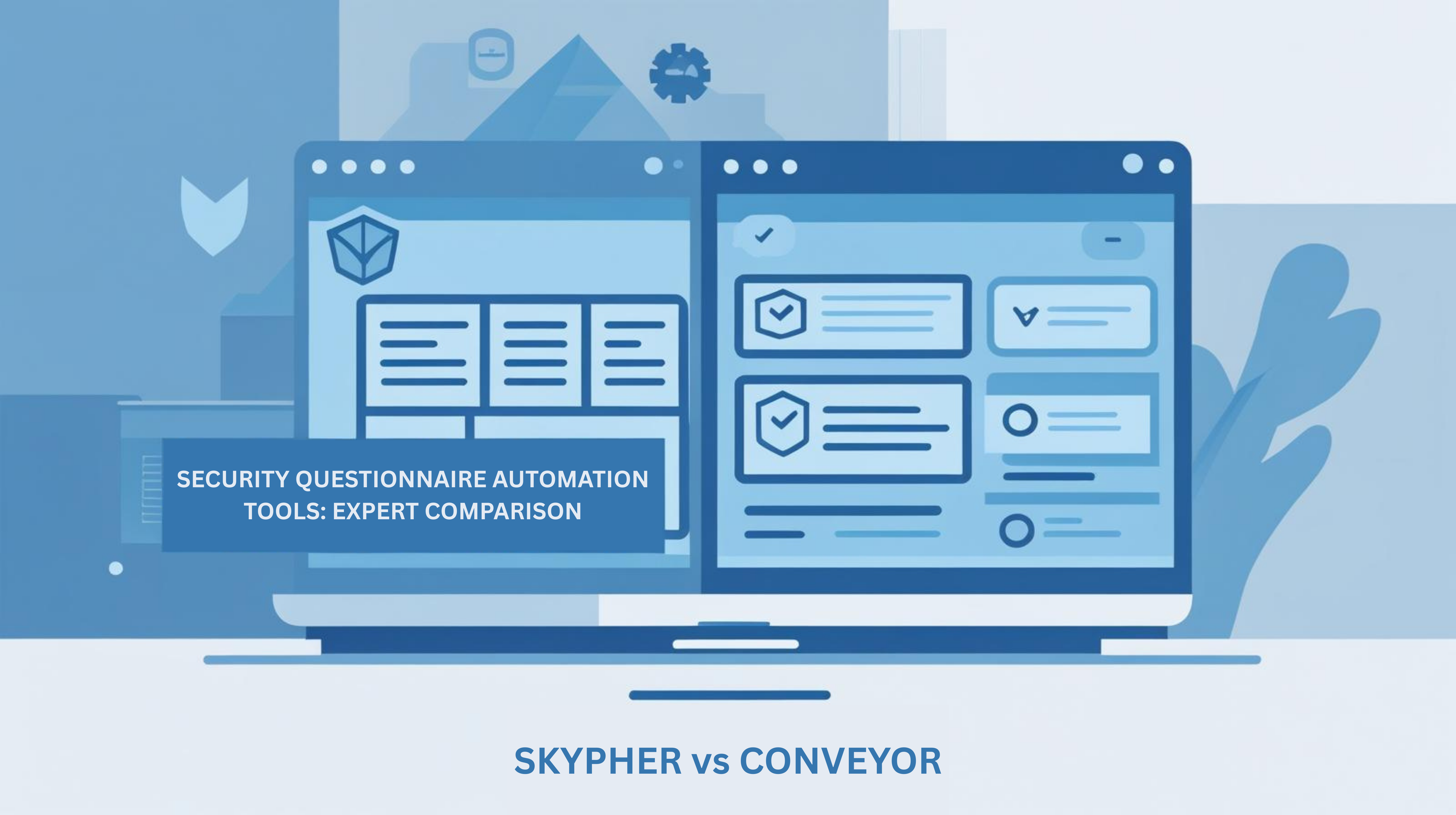Understanding a Due Diligence Questionnaire: Definition & Purpose
A due diligence questionnaire (DDQ) is a structured document containing a comprehensive set of questions designed to evaluate an organization before entering into a significant business relationship. This systematic tool helps parties gather critical information about potential partners, investments, or acquisition targets to make informed decisions and mitigate risks.
According to iDeals, DDQs serve as formal documents that assess various aspects of an organization prior to collaborations such as mergers, acquisitions, partnerships, or vendor relationships.
The primary purposes of a due diligence questionnaire include:
- Identifying potential risks and liabilities before finalizing agreements
- Establishing transparency between the involved parties
- Collecting verifiable information about financial health, operational capabilities, and legal compliance
- Creating documentation that serves as evidence of thorough investigation
- Setting expectations and clarifying details for future business relationships

DDQs differ from general security questionnaires, as they encompass broader operational aspects rather than focusing solely on security protocols. A well-structured DDQ template ensures all critical areas receive proper attention during the evaluation process, reducing the likelihood of overlooking significant issues that could impact the success of the business relationship.
Key Takeaways
| Takeaway | Explanation |
|---|---|
| DDQs are essential for informed decision-making | They help organizations gather critical information and evaluate potential risks before entering business relationships. |
| Transparency is crucial in DDQs | Establishing transparency between parties is a key goal, ensuring all relevant information is disclosed upfront. |
| A structured DDQ reduces oversight | A well-structured DDQ template ensures comprehensive coverage of important areas, minimizing the risk of overlooking significant issues. |
| Documentation serves as legal protection | Thorough investigations documented through DDQs can provide legal protection against future disputes arising from the business relationship. |
| DDQs enhance efficiency in assessment | The standardized format of DDQs streamlines the evaluation process, allowing for quicker comparisons between multiple opportunities. |
The Critical Role in Investment and Business Transactions
Due diligence questionnaires (DDQs) serve as cornerstone tools in facilitating informed investment decisions and complex business transactions. Their implementation can significantly reduce transaction risks while providing valuable insights that influence negotiation strategies and valuation assessments.
In the investment landscape, DDQs are particularly vital during:
- Mergers and acquisitions, where they help buyers thoroughly evaluate target companies
- Private equity and venture capital investments, allowing investors to assess startups and growth companies
- Institutional investments, where thorough vetting of investment managers is required
- Strategic partnerships, ensuring alignment and compatibility between entities
- Vendor and supplier relationships, mitigating potential third-party risks

The stakes in these transactions are substantial—according to iDeals, 82% of companies provide third-party vendors access to their cloud data, highlighting the significant security exposure that proper due diligence can help manage.
Beyond risk mitigation, DDQs create documentation trails that demonstrate regulatory compliance and fiduciary responsibility. For investment advisors, fund managers, and corporate executives, this documentation serves as evidence of thorough investigation, potentially offering legal protection if future disputes arise.
The standardized format of DDQs also streamlines the evaluation process, enabling systematic comparisons between multiple investment opportunities or potential business partners. This standardization increases efficiency while ensuring consistency in the decision-making process.
Core Components: Breaking Down a Due Diligence Questionnaire
A comprehensive due diligence questionnaire (DDQ) typically encompasses several critical areas of assessment, each designed to reveal specific aspects of an organization’s operations and potential risks. An effective DDQ balances breadth of coverage with depth of inquiry to provide a complete picture of the target entity.
While the exact structure varies based on industry and transaction type, most DDQs include these fundamental components:
1. Corporate Structure and Governance
- Legal entity information and organizational charts
- Ownership structure and shareholder agreements
- Board composition and decision-making processes
- Corporate governance policies and compliance frameworks
2. Financial Health Assessment
- Historical financial statements and performance metrics
- Revenue streams and business model evaluation
- Capital structure and debt obligations
- Financial projections and valuation methodologies
3. Operational Capabilities
- Business processes and operational infrastructure
- Staffing, management team, and key personnel profiles
- Technology systems and intellectual property assets
- Supply chain relationships and dependencies
4. Risk Management and Compliance
- Regulatory compliance status across jurisdictions
- Litigation history and potential legal exposures
- Insurance coverage and risk mitigation strategies
- Cybersecurity protocols and data protection measures
According to RiskRecon, different industries utilize specialized DDQs that focus on sector-specific concerns—real estate DDQs examine property aspects like title and environmental concerns, while financial compliance DDQs assess adherence to relevant regulations.
The depth of each section depends on the transaction’s complexity and risk profile. For high-stakes investments or acquisitions, supplementary documentation requests often accompany the questionnaire to verify responses and provide supporting evidence.
Step-by-Step Guidance for Completing and Evaluating a DDQ
Navigating a due diligence questionnaire effectively requires methodical preparation and assessment, whether you’re the party completing it or evaluating responses. The quality of information exchanged through this process directly impacts investment outcomes and business relationship success.
For Organizations Completing a DDQ:
-
Assemble a Cross-Functional Team
- Include representatives from finance, legal, operations, IT, and compliance
- Assign clear responsibilities for each section based on expertise
- Designate a coordinator to maintain consistency across responses
-
Prepare Documentation Proactively
- Gather supporting materials before beginning the questionnaire
- Organize documents in a secure, easily accessible digital format
- Create standardized responses for commonly requested information
-
Provide Transparent, Accurate Responses
- Answer questions completely without unnecessary elaboration
- Address potential concerns directly rather than obscuring challenges
- Ensure consistency between questionnaire responses and supporting documentation
For Organizations Evaluating DDQ Responses:
-
Establish Clear Assessment Criteria
- Define dealbreakers versus manageable concerns
- Create a scoring system for objective comparison of multiple candidates
- Prioritize sections based on your specific risk tolerance and objectives
-
Conduct Thorough Analysis
- Verify responses against supporting documentation
- Note inconsistencies and areas requiring further clarification
- Compare responses to industry standards and best practices
-
Follow Up Strategically
- Request additional information for incomplete or concerning responses
- Schedule discussions to address complex issues that require context
- Document all clarifications as part of the evaluation record
According to Privasee, effective DDQs help mitigate risk, ensure compliance, build trust, and protect reputation by identifying potential problems before entering business relationships. This underscores the importance of taking a methodical approach to both completing and evaluating these questionnaires.
The evaluation process should culminate in a comprehensive report highlighting key findings, potential risks, and recommended next steps—providing decision-makers with clear insights to guide their investment or partnership decisions.
Expert Tips, Best Practices, and Avoiding Common Pitfalls
Creating and responding to due diligence questionnaires effectively requires strategic thinking and attention to detail. Implementing industry best practices can significantly improve the quality of information exchange and lead to better investment outcomes.
Best Practices for DDQ Creation
-
Customize for Specific Contexts
- Tailor questions to the specific industry, transaction type, and risk profile
- Remove irrelevant sections to avoid unnecessary work and confusion
- Include industry-specific compliance and regulatory questions
-
Structure for Clarity and Completeness
- Organize questions logically, grouping related topics together
- Use precise language that minimizes ambiguity
- Provide clear instructions for supporting documentation requirements
-
Balance Depth with Practicality
- Focus on material issues rather than exhaustive but low-value details
- Consider the respondent’s perspective and available resources
- Allow appropriate time frames based on questionnaire complexity
Common Pitfalls to Avoid
-
For Questionnaire Creators
- Overloading with excessive questions that obscure critical issues
- Using overly technical language without clear explanations
- Failing to update questions to reflect current regulatory environments
- Neglecting to provide secure methods for submitting sensitive information
-
For Respondents
- Rushing responses without thorough internal verification
- Providing generic answers that lack specific evidence or examples
- Overlooking inconsistencies between different sections
- Failing to explain potential red flags proactively
According to blog.wei.com, successful implementation of any critical business process requires a strategic approach rather than just following a checklist—this principle applies directly to DDQs, where a thoughtful strategy yields better results than merely completing forms.
The Evolving DDQ Landscape
Modern DDQs increasingly incorporate digital solutions for more efficient data collection and analysis. Digital platforms can streamline the process by allowing real-time collaboration, automated validation of responses, and secure document sharing. As regulatory requirements continue to evolve, particularly around data privacy and cybersecurity, DDQs must adapt accordingly to maintain their effectiveness as risk assessment tools.
Real-World Examples and Templates: From Standardized to Emerging Manager DDQs
Due diligence questionnaires vary significantly across industries and use cases, with certain templates becoming industry standards while others are tailored for specific contexts. Understanding the range of DDQ formats helps organizations select or create the most appropriate tool for their particular situation.
Standardized Industry Templates
-
Institutional Limited Partners Association (ILPA) DDQ
- Widely adopted in private equity and venture capital
- Comprehensive coverage of fund terms, investment strategy, and governance
- Structured to address institutional investors’ fiduciary requirements
-
Alternative Investment Management Association (AIMA) DDQ
- Standard for hedge fund due diligence
- Detailed sections on investment process, risk management, and operations
- Updated periodically to reflect evolving best practices
-
Vendor Risk Management (VRM) Questionnaires
- Focus on third-party service provider assessment
- Heavy emphasis on information security and data protection
- Often integrated with compliance frameworks (SOC 2, ISO 27001)
According to Diligent, an estimated 60% of security incidents originate from vendors, highlighting why vendor DDQs have become increasingly rigorous, particularly regarding cybersecurity practices.
Specialized DDQ Examples
-
Emerging Manager DDQs
- Tailored for first-time fund managers or startup investments
- Greater focus on team background, track record attribution, and investment thesis
- Often includes questions about operational development plans
-
ESG-Focused DDQs
- Assess environmental, social, and governance factors
- Questions regarding sustainability practices, diversity initiatives, and ethical standards
- Increasingly incorporated into mainstream investment DDQs
-
Technology Acquisition DDQs
- Specialized sections on intellectual property, development practices, and technical debt
- Detailed evaluation of scalability, security architecture, and compliance
- Assessment of technical team capabilities and knowledge transfer
The trend in DDQ development is toward modular designs that can be customized based on transaction type, with core modules remaining consistent while specialized sections are added or removed as needed. This approach balances standardization with flexibility, allowing for more efficient and targeted due diligence processes.
Frequently Asked Questions
What is a due diligence questionnaire (DDQ)?
A due diligence questionnaire (DDQ) is a structured document that contains a set of questions aimed at evaluating an organization prior to entering into a significant business relationship, such as mergers, acquisitions, or partnerships.
Why are due diligence questionnaires important?
Due diligence questionnaires are crucial for identifying potential risks and liabilities, establishing transparency between parties, and gathering verifiable information about a company’s financial health and compliance before finalizing agreements.
What are the key components of a due diligence questionnaire?
Key components of a DDQ typically include corporate structure and governance, financial health assessment, operational capabilities, and risk management and compliance.
How can organizations effectively complete and evaluate a DDQ?
Organizations can effectively complete and evaluate a DDQ by assembling a cross-functional team, preparing documentation proactively, providing transparent responses, establishing clear assessment criteria, and conducting thorough analyses of the responses.
Streamline Your Due Diligence with Skypher’s Automated Solutions
Navigating the complexities of due diligence questionnaires (DDQs) can feel overwhelming—especially with the stakes involved in mergers, acquisitions, and strategic partnerships. The need for transparency, accuracy, and timely responses is critical to identifying potential risks and ensuring informed investment decisions.

What if you could transform this cumbersome process into a seamless experience? At Skypher, we offer an AI-driven Questionnaire Automation Tool designed to streamline and automate the response process for security questionnaires, ensuring you complete your evaluations significantly faster and with higher accuracy. Our platform supports various formats and integrates with over 40 third-party risk management platforms, making it easier than ever to communicate and collaborate across teams.
Don’t let tedious paperwork slow you down—enhance your operational productivity and build trust with stakeholders today. Experience how Skypher can simplify due diligence and empower your organization to make smarter, informed investment decisions. Visit Skypher now to get started!





